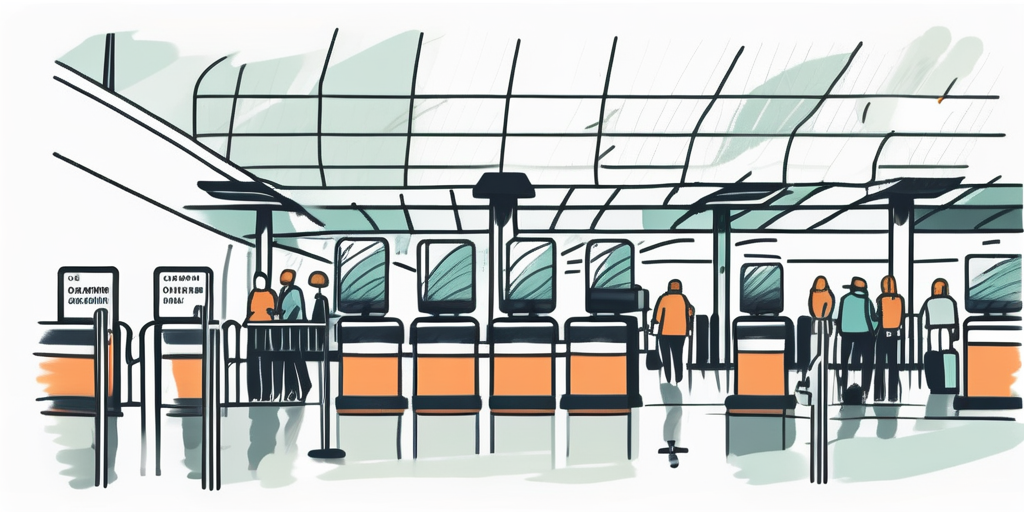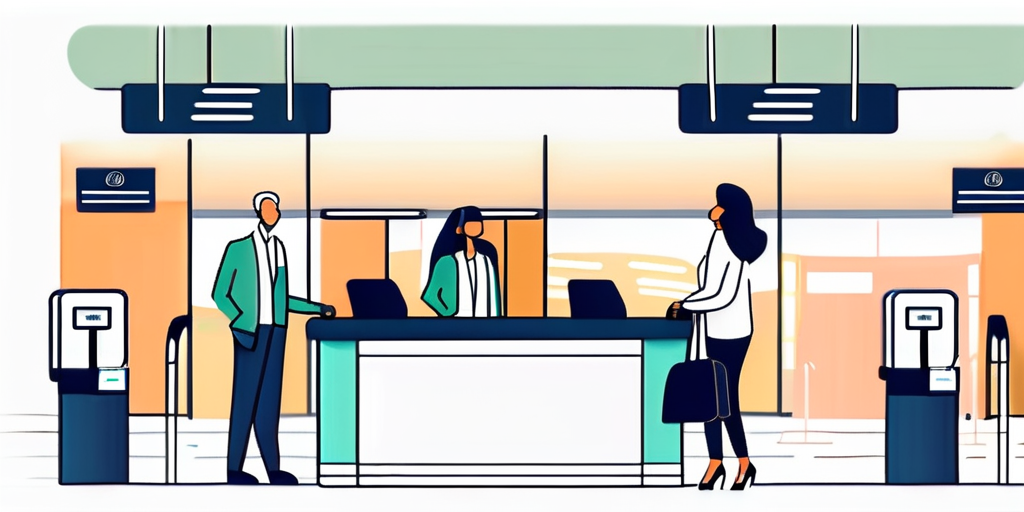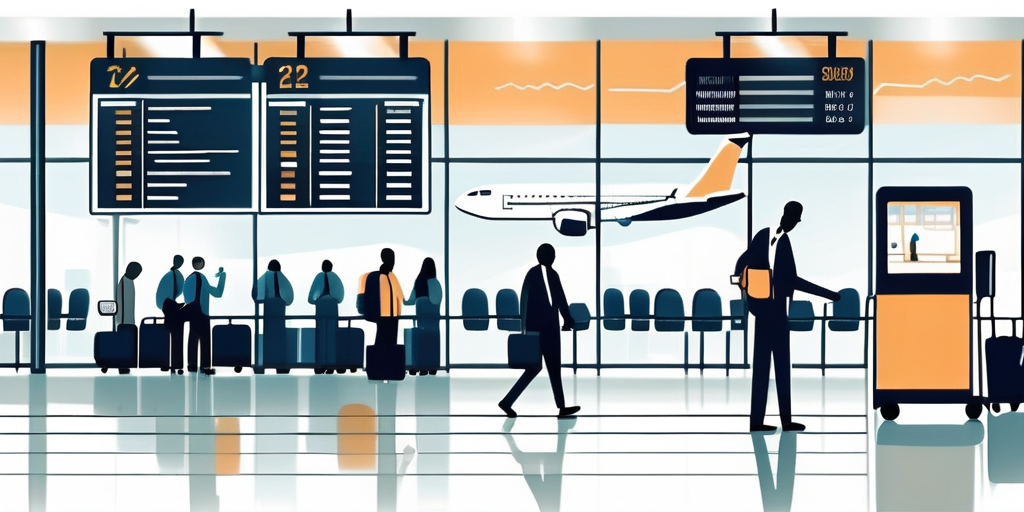What to Do in Case of Overbooking
Discover how to handle overbooking situations with this passenger guide. Get practical tips and advice to navigate the process confidently.
In the unfortunate event of experiencing an overbooking situation, it's essential to know your rights and the steps you can take to address the issue. Overbooking occurs when airlines or hotels sell more tickets or rooms than they have available, which can lead to inconvenience and frustration for passengers. This article will provide you with a comprehensive guide on what to do if you find yourself facing overbooking.
Understanding Overbooking
Before diving into the necessary steps to take, it is important to have a clear understanding of what overbooking entails. In its most basic form, overbooking refers to the practice of selling more tickets or rooms than are physically available. This is a common strategy employed by airlines and hotels to maximize their revenue and minimize the risk of empty seats or vacant rooms.
Overbooking is a delicate balancing act for businesses, walking the fine line between maximizing profits and ensuring customer satisfaction. It involves a strategic calculation of potential cancellations and no-shows, with the aim of optimizing revenue without inconveniencing customers. This practice requires a keen understanding of consumer behavior and industry trends to predict demand accurately.
The Basics of Overbooking
Overbooking occurs due to several factors, such as the unpredictability of cancellations and no-shows. In order to compensate for these potential losses, airlines and hotels intentionally sell more tickets or rooms than they have available. This practice assumes that not everyone will show up. However, when everyone does show up, overbooking can result in passengers being denied their rightful services.
Furthermore, overbooking is not limited to just airlines and hotels. Restaurants, event venues, and car rental companies also utilize this strategy to ensure maximum utilization of their resources. The practice extends beyond the travel industry, highlighting its versatility in different business models and sectors.
Why Overbooking Happens
Overbooking is essentially a risk-management strategy for airlines and hotels. By overselling tickets or rooms, they can try to ensure full occupancy and maximize their revenue. While this may be beneficial for the business, it can cause inconvenience and frustration for passengers who end up without a seat or room they paid for. Understanding the reasons behind overbooking can help you navigate the situation more effectively.
Moreover, the competitive nature of the travel industry further drives the need for overbooking. With fluctuating demand, seasonal variations, and dynamic pricing strategies, airlines and hotels must constantly adapt to market conditions. Overbooking serves as a proactive measure to mitigate the financial risks associated with these uncertainties, allowing businesses to remain agile and competitive in a fast-paced environment.
Your Rights as a Passenger
As a passenger, it's crucial to be aware of your rights when facing an overbooking situation. Thankfully, various legal protections exist to safeguard your interests.
Being informed about your rights as a passenger is essential, especially in situations like overbooking. It empowers you to advocate for yourself and ensures that you receive fair treatment and compensation when necessary. Understanding the legal framework surrounding overbooking can make a significant difference in how you navigate such circumstances.
Legal Protections Against Overbooking
In many countries, laws have been established to protect passengers from overbooking practices. These regulations outline the actions that airlines and hotels must take to compensate affected individuals. Familiarize yourself with the specific laws and regulations in your country to fully understand your entitlements.
Additionally, some regulations require airlines to seek volunteers willing to give up their seats before involuntarily denying boarding to passengers. This process aims to minimize the impact of overbooking on travelers and ensure a smoother resolution for all parties involved.
Compensation for Overbooking
When you are denied boarding because of an overbooking situation, you may be entitled to compensation. This can include financial reimbursement, alternative accommodation, meals, and transportation, depending on local legislation. Remember to keep track of any expenses or inconveniences you incur as evidence for potential compensation claims.
It's important to note that the compensation you receive for being involuntarily bumped from a flight can vary depending on the length of the delay caused by the overbooking. Understanding the criteria used to determine compensation amounts can help you assess whether the offer provided by the airline aligns with your rights under the law.
Steps to Take When Overbooked
When faced with an overbooking situation, it's important to act promptly to protect your rights and find a satisfactory resolution. Here are some steps to consider:

Immediate Actions to Consider
Upon discovering that your seat or room has been overbooked, approach the airline or hotel staff and express your concern. Remain calm and assertive while explaining the situation and your expectation of appropriate compensation or alternative arrangements. Document any conversations or interactions you have for future reference.
It's worth noting that overbooking is a common practice in the travel industry, as airlines and hotels often sell more tickets or rooms than they have available. This is done to maximize revenue and account for potential cancellations or no-shows. While it may seem frustrating as a passenger or guest, understanding the reasoning behind overbooking can help you navigate the situation more effectively.
Additionally, check if the airline or hotel has a designated complaints procedure or a customer service department you can contact. By following the established channels, you increase the chances of finding a satisfactory solution. Remember to provide all necessary details and evidence to support your claim, such as booking confirmations, receipts, or any other relevant documentation.
Long-Term Solutions to Overbooking
To protect yourself from future inconveniences caused by overbooking, there are several proactive measures you can take. Firstly, consider booking with airlines or hotels that have a reputation for rarely overbooking. Research customer reviews and experiences to gauge their track record in this regard.
Moreover, consider booking your travel accommodations well in advance. This reduces the likelihood of booking during periods of high demand or limited availability, when overbooking is more probable. Flexible travel dates can also increase your chances of securing a seat or room without encountering overbooking issues.
Another strategy to minimize the risk of overbooking is to join loyalty programs offered by airlines or hotel chains. These programs often provide priority access to available seats or rooms, giving you an advantage over non-members during peak travel periods.
Lastly, familiarize yourself with the terms and conditions of your booking. Pay attention to any clauses related to overbooking and the compensation you may be entitled to. Being aware of your rights can empower you to negotiate a fair resolution in case of overbooking.
Dealing with Airlines and Hotels
Successfully addressing an overbooking situation requires effective communication and negotiation with airlines and hotels. Here are some tips to navigate these conversations effectively:
 When it comes to dealing with overbooking situations, understanding your rights as a passenger is crucial. Familiarize yourself with the terms and conditions of your booking to know what compensation you are entitled to in such circumstances. Being informed empowers you to advocate for yourself confidently when communicating with customer service representatives.
When it comes to dealing with overbooking situations, understanding your rights as a passenger is crucial. Familiarize yourself with the terms and conditions of your booking to know what compensation you are entitled to in such circumstances. Being informed empowers you to advocate for yourself confidently when communicating with customer service representatives.
Communicating with Customer Service
When dealing with airlines or hotels regarding overbooking, approach the customer service department first. Explain your situation clearly, emphasizing your rights as a passenger and the inconvenience caused by the overbooking. Maintain a calm but assertive demeanor to convey the seriousness of the issue without being confrontational.
It's essential to document all interactions with customer service, including names, timestamps, and details of the conversation. Having a record can be valuable if you need to escalate the matter further or file a formal complaint with regulatory authorities.
Negotiating with Airlines and Hotels
In some cases, customer service may not be able to resolve the issue immediately. If this happens, ask to speak with a supervisor or a higher-level representative who can authorize compensation or alternative arrangements. During negotiations, remain firm in asserting your rights and be open to finding a mutually beneficial resolution.
Remember that airlines and hotels may have policies in place for handling overbooked situations, such as providing meal vouchers, accommodation, or alternative transportation. Don't hesitate to inquire about these options and ensure you are fairly compensated for any inconvenience caused by the overbooking.
Preventing Overbooking Situations
While you cannot control the actions of airlines or hotels, there are some measures you can take to minimize the risk of encountering overbooking situations:
 Overbooking is a common practice in the travel industry, where airlines and hotels sell more reservations than available seats or rooms to maximize their revenue. This strategy is used to compensate for no-shows and cancellations, but it can lead to inconveniences for passengers.
Overbooking is a common practice in the travel industry, where airlines and hotels sell more reservations than available seats or rooms to maximize their revenue. This strategy is used to compensate for no-shows and cancellations, but it can lead to inconveniences for passengers.
Booking Strategies to Avoid Overbooking
Before making a reservation, consider checking the airline or hotel's policies regarding overbooking. Some establishments may disclose their overbooking practices, enabling you to make an informed decision. Additionally, booking directly with the airline or hotel may offer more flexibility and control over your reservation.
Another effective strategy to avoid overbooking is to book your travel plans well in advance. By securing your reservation early, you reduce the likelihood of being bumped off a flight or having your hotel room given away due to overbooking.
Travel Insurance and Overbooking
Consider purchasing travel insurance that covers overbooking situations. Travel insurance can provide financial protection and assistance in finding alternative arrangements if overbooking occurs. Review the policy's terms and conditions to ensure that it covers overbooking scenarios.
Moreover, when booking your travel insurance, inquire about specific coverage options for overbooking, such as reimbursement for additional expenses incurred due to being bumped off a flight or relocated to a different hotel.
In conclusion, being prepared for overbooking situations can save you from unnecessary stress and inconvenience. Familiarize yourself with your rights as a passenger, take appropriate actions when faced with overbooking, and consider proactive strategies to prevent such situations in the future. By staying informed and assertive, you can navigate overbooking situations with confidence and ensure a smoother travel experience.
Get the Compensation You Deserve with ClaimCompass
If you've been inconvenienced by an overbooked flight, ClaimCompass is here to help. We specialize in securing up to 600€ in compensation for air passengers affected by flight delays, cancellations, and overbookings, based on EU Regulation 261/2004. Our team will handle your claim from start to finish, dealing with the airline on your behalf, and even taking legal action if necessary. Check your eligibility for free using our compensation calculator and let us take care of the rest. Remember, there's no cost to you unless we succeed in getting your compensation. Submit a claim today and let ClaimCompass advocate for your air passenger rights.
